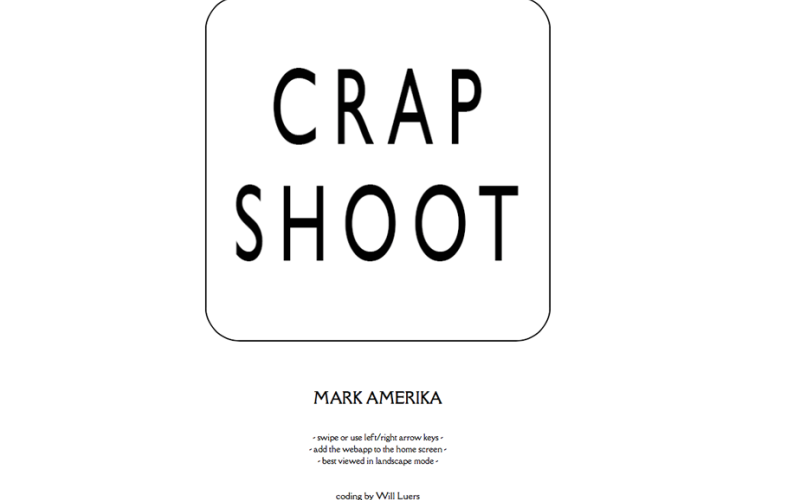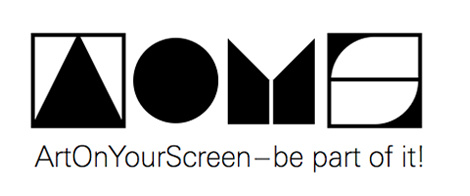Mark Amerika: Crapshoot
Since 31.01.2015
From writing to image: »a non-place place where the bodies are published« is written in small letters on the tablet screen. Distributed above this are additional textual segments in the form of verse, sentence fragments and words. When swiping over the page a new content appears in an altered arrangement. This unconventional organization of writing contravenes the idea of linear reading and the linear thought with which we are familiar. It occurs as random-based combinatorics in »Crapshoot« (2013–2014), as in the title of Mark Amerika’s contribution to AOYS.
The inspirational source for the work is a literary milestone of the nineteenth century, namely, Stéphane Mallarmé’s »Un Coup de Dés Jamais N'Abolira Le Hasard« [A Throw of the Dice will Never Abolish Chance] dating from 1897. A far cry from twentieth century avant-gardes, the poem – a typographic as well as literary experiment – unfolds over twenty pages of what, for that time, was a unique layout, namely, in wave form top to bottom in alternating character sets, typefaces and point sizes.
Mark Amerika recasts this masterpiece in the form of a new text design suited to our contemporary devices. At the same time, in addition to the book – now over 100 years-old – the textual sources form elements of its reception. Critics, philosophers, as well as autobiographic material, such as reflections on Amerika’s own experience of reception, flow into the data pool that feeds the generator of »Crapshoots«. Furthermore, the artist, born in 1960, and who teaches art and art history at the University of Colorado, Boulder, contextualizes works on Mallarmé by contemporary thinkers, such as Quentin Meillassoux or Jacques Rancière.
The title »Crapshoot« is encoded in several ways. In using the expletive »crap«, Amerika refers to the trash which haunts the Web. He also makes reference to the dice game »Craps« (also Seven-Eleven), a simplified variation of the old English game »Hazard« which also reflects the title of Mallarmé’s poem.
The user’s experience of reception is essential: Every reader generates a unique constellation of textual blocks and fragments that substantially confounds the way of reading. In the performative act of randomized poetized reading he becomes a producer and mirror of the media present.
Author: Matthias Kampmann

